Northshore Food Bank is truly a community food bank. Supported by the generosity of businesses, civic organizations, and individuals, the food bank serves the needs of the most vulnerable in our community. Northshore Food Bank serves the Northshore and is a 501(c)(3) nonprofit organization.
Northshore Food Bank Resale Shop offers clothing, household items, furniture and many other great items at greatly reduced rates. Proceeds help support the operations of the food bank.
There are many volunteer opportunities available at Northshore Food Bank. We welcome volunteers from all backgrounds to come share their time and talents with us to help ensure our continued success in providing for those in need. If you are interested in volunteering for any of these programs, click here.
Northshore Food Bank provides food assistance to more than 300 individuals and families each week who live at or below the 185% federal poverty guidelines and have found themselves in need within our community. Individuals can receive a minimum of 40 lbs. of food every month and families can receive a minimum of 70 lbs. of shelf stable food each month. Recipients also receive what we call a “lagniappe” box, which is filled with a variety of breads, pastries, dairy products, fresh produce, or frozen foods.
The Food Bank is supported by local food drives held by individuals, schools, civic organizations and businesses, as well as monetary donations and Second Harvest donations.
The Food Bank is managed and operated by a handful of employees and hundreds of loyal and dedicated volunteers who serve in various roles such as: sorting, packing and distributing food to recipients; providing pick-ups for food donations; providing office support; and assisting with special events and food drives throughout the year. For more information on volunteer opportunities, click here.
The Food Bank is open Monday, Tuesday, Thursday from 9:00 am – 12:00 pm to serve the needs of the community and to accept donations.
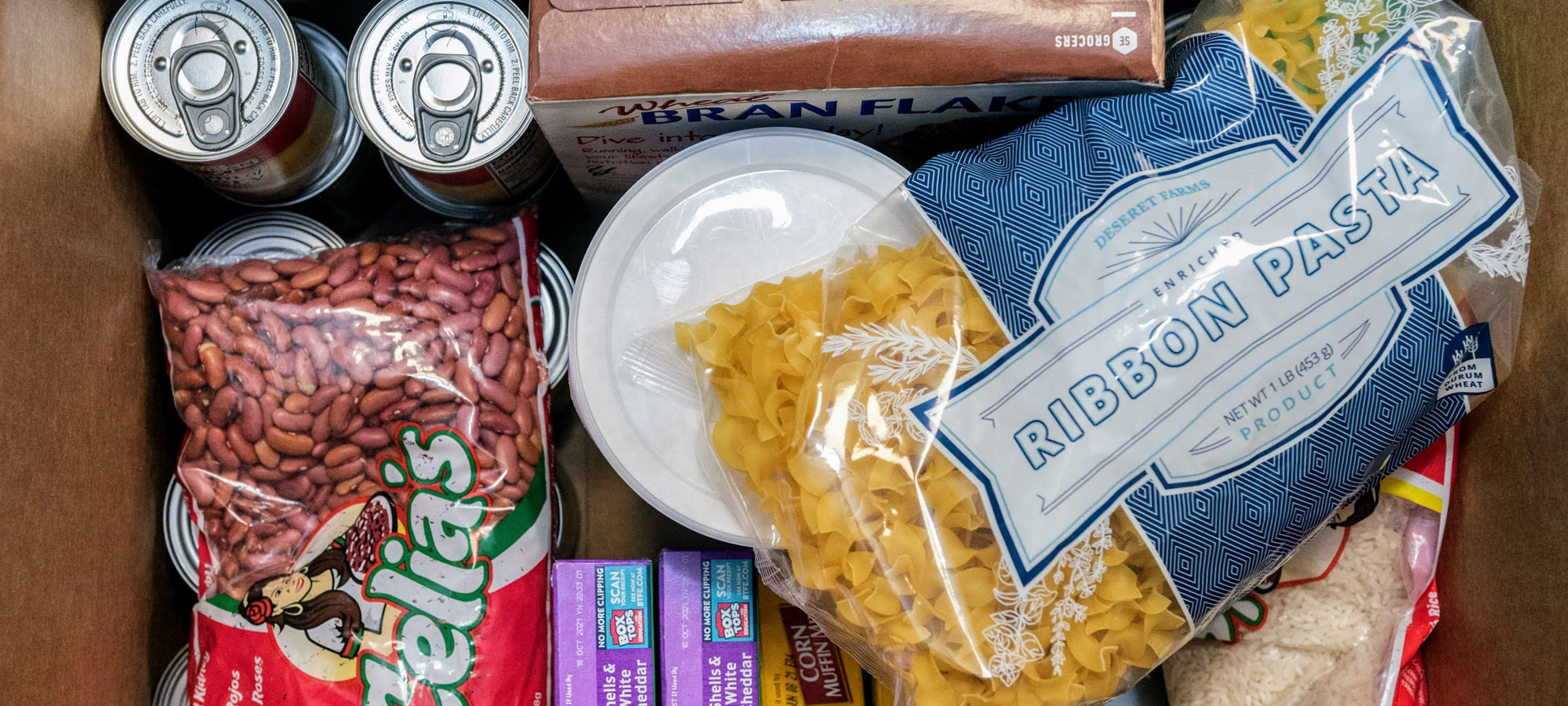

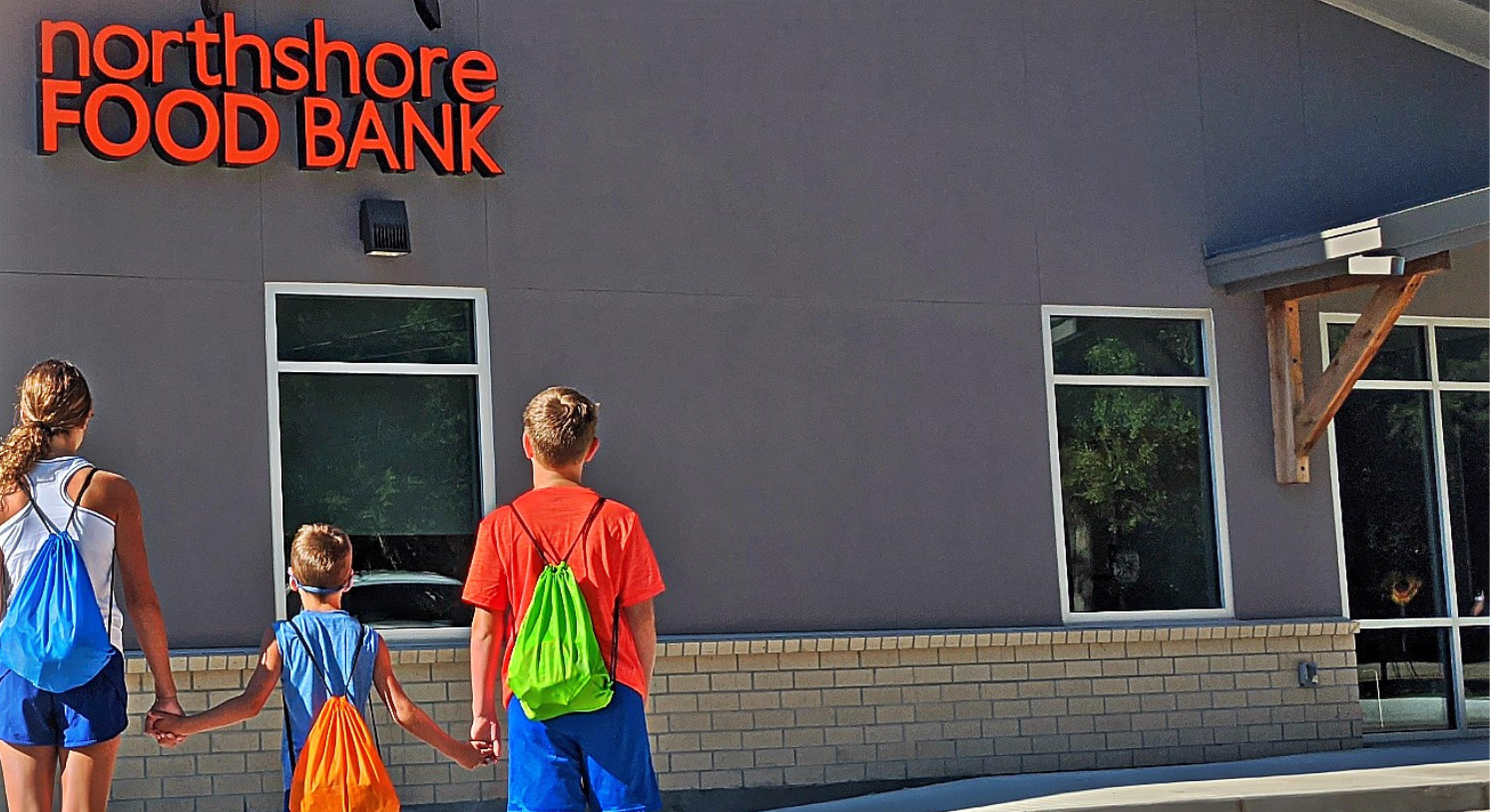
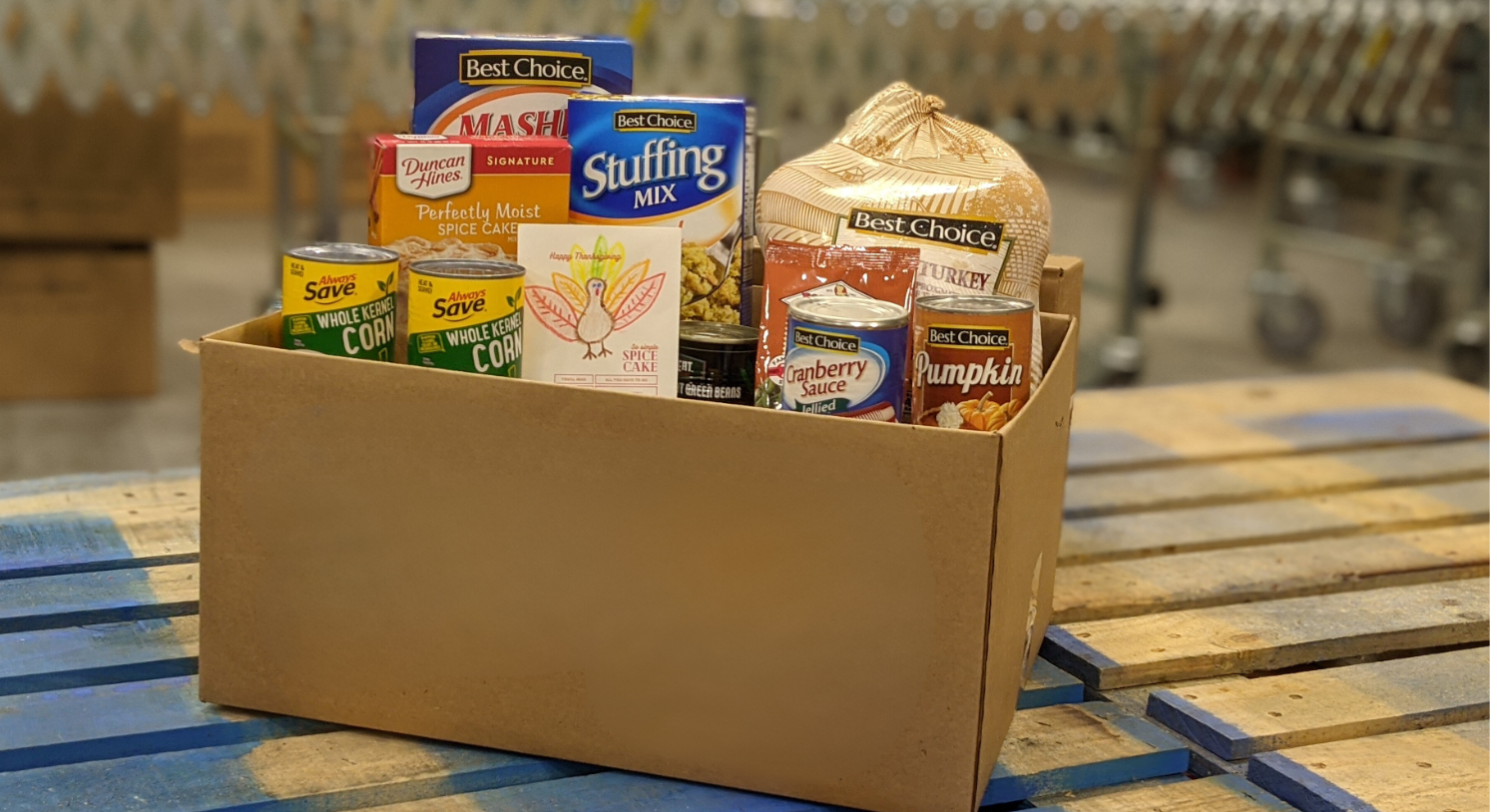

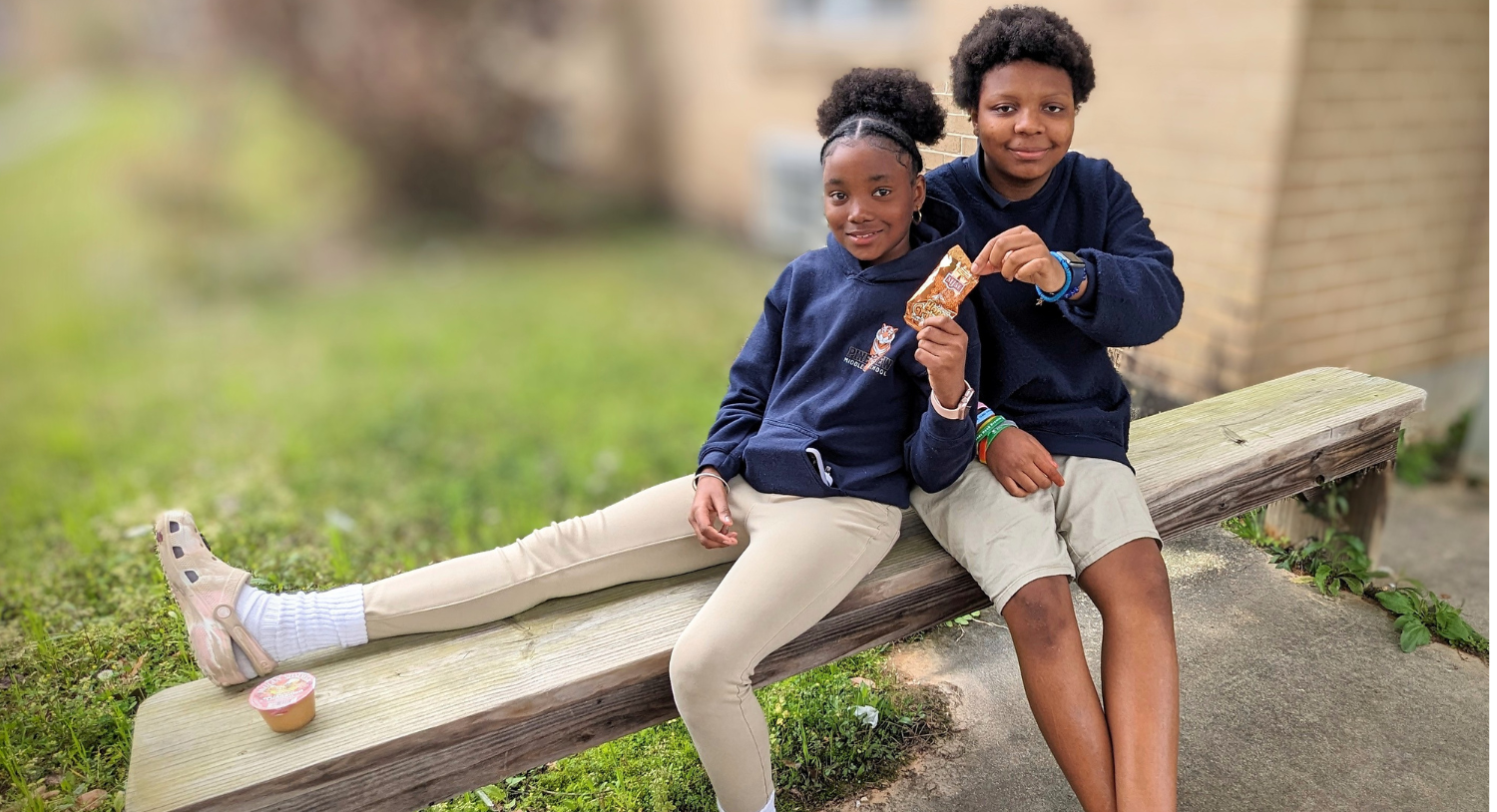
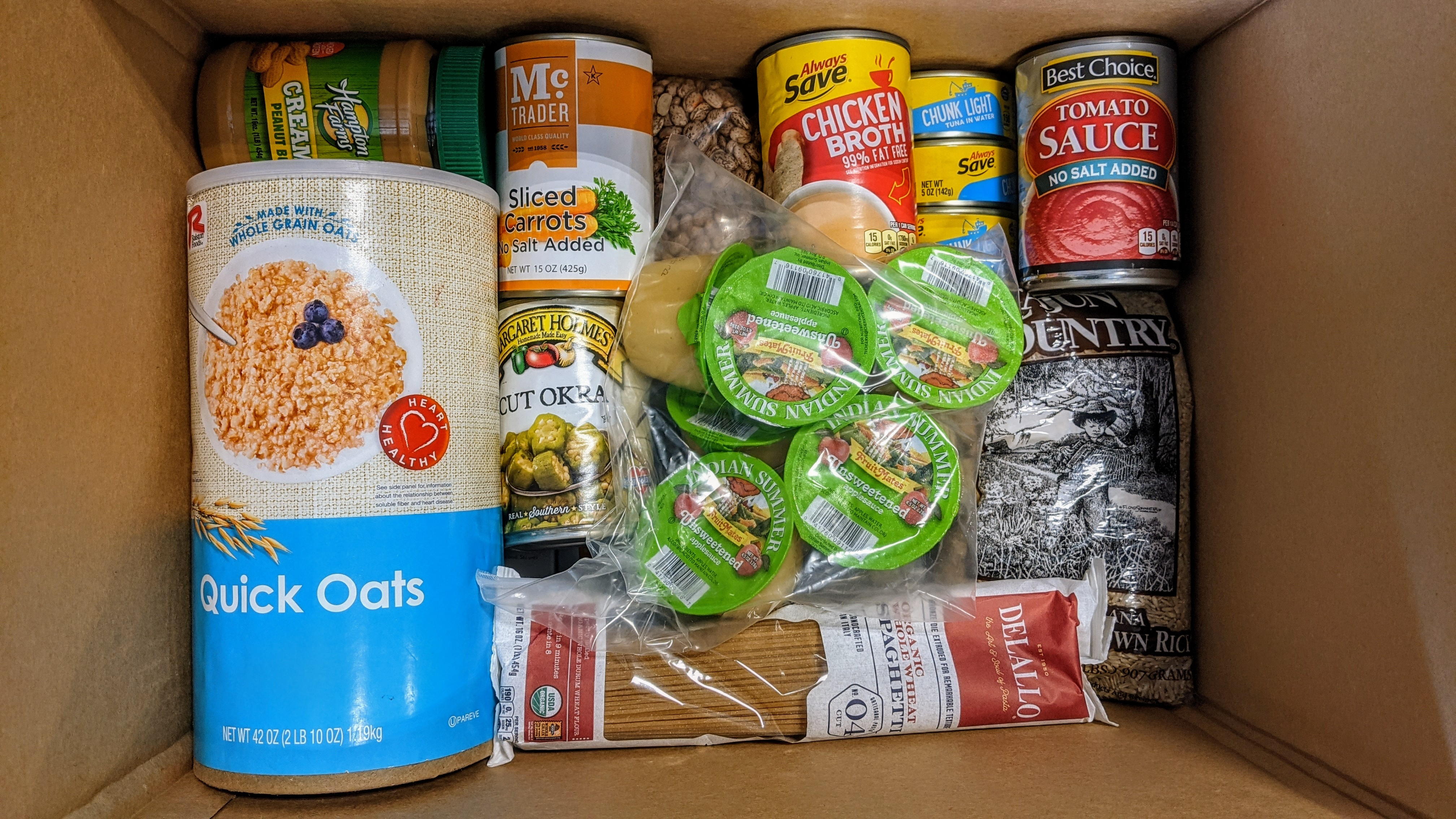
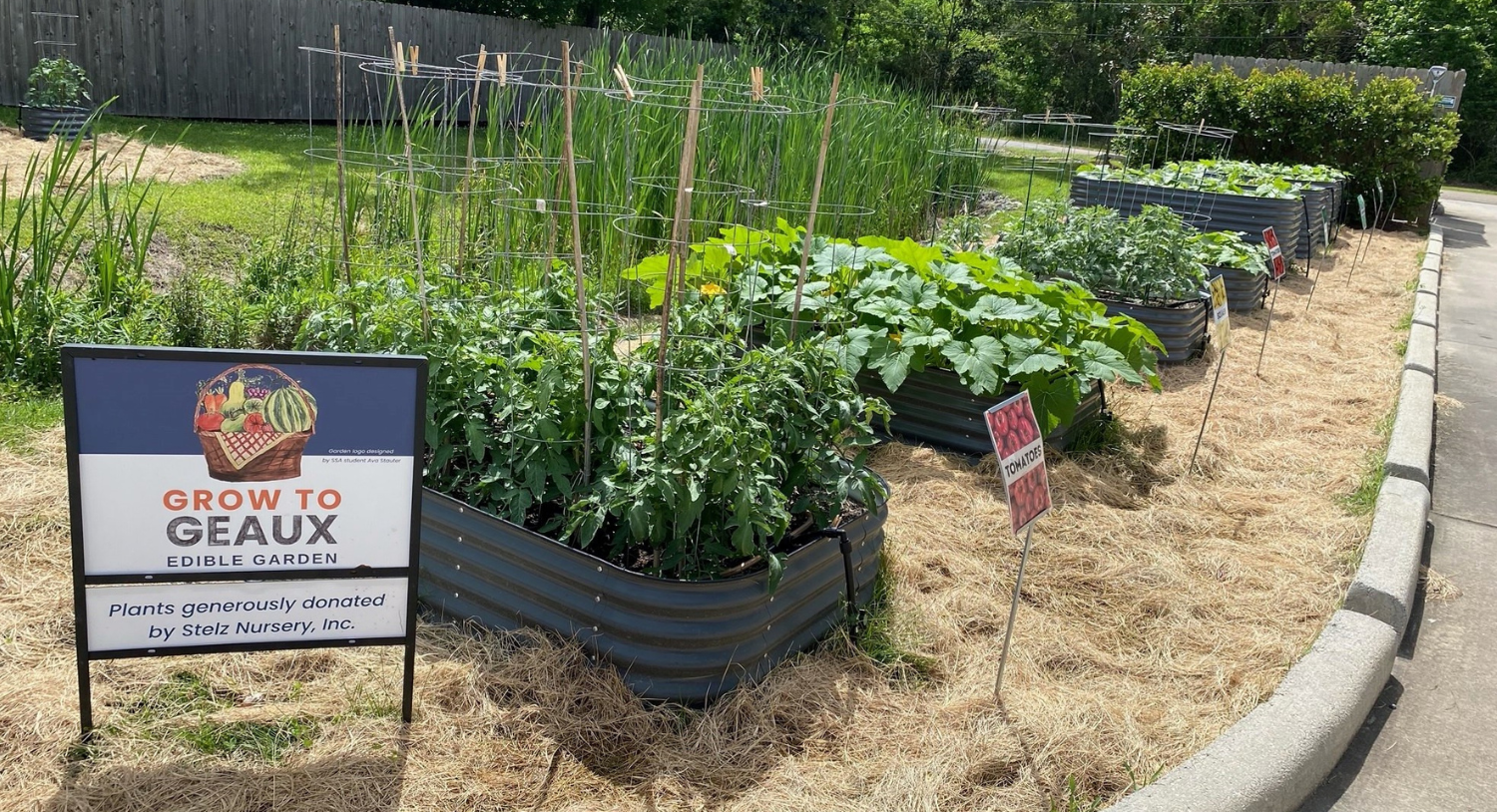
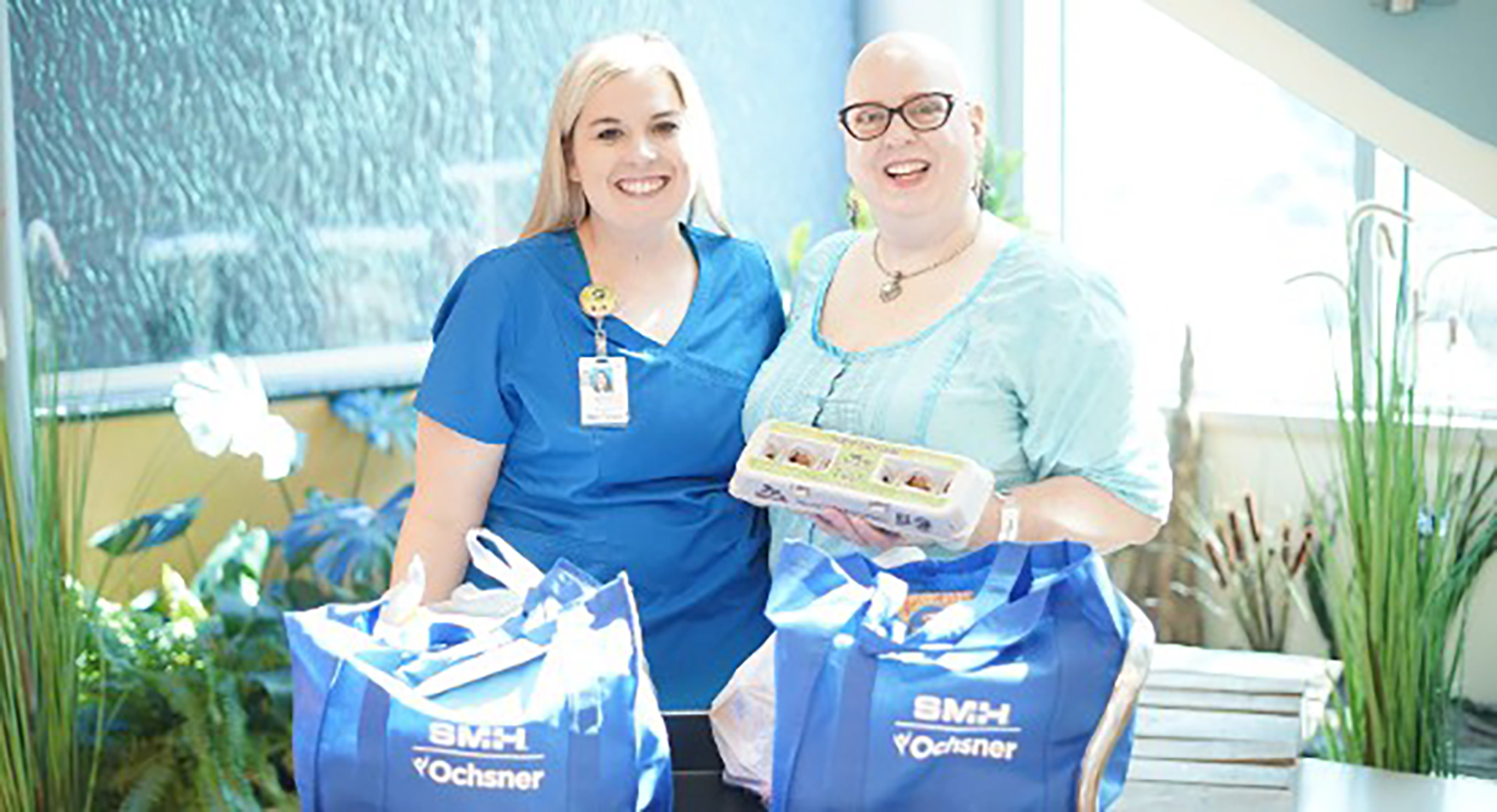

Nine churches in the ecumenical group took the lead and provided the food in the early weeks of operation. The nine churches involved in establishing the Food Bank were Christ Episcopal Church, Covington Presbyterian, Dove Park Church of God, First Baptist of Covington, First United Methodist, Greater Starlight Baptist, Holy Trinity Lutheran, St. Peter Catholic Church and Shepherd’s Fold Church of God. As the Food Bank grew so did the number of churches involved in the endeavor increasing to 20 and then to 37. The churches took on full responsibility of providing all the food for the Food Bank without receiving any federal, state or municipal funding. Deacon Skip and the Food Bank ran on the philosophy “Whatever we give is, in reality, theirs, which God in His goodness gives to all. We are merely, in justice, sharing the abundance which we have taken for ourselves.” The churches served 40 families per week in the first year of operation and by their first anniversary had 30 trained volunteers.


